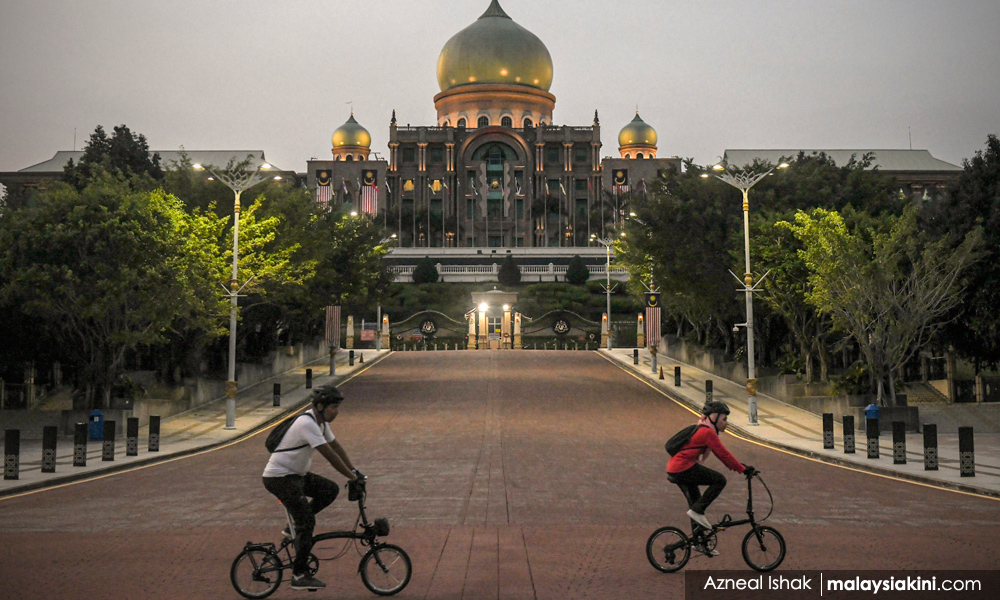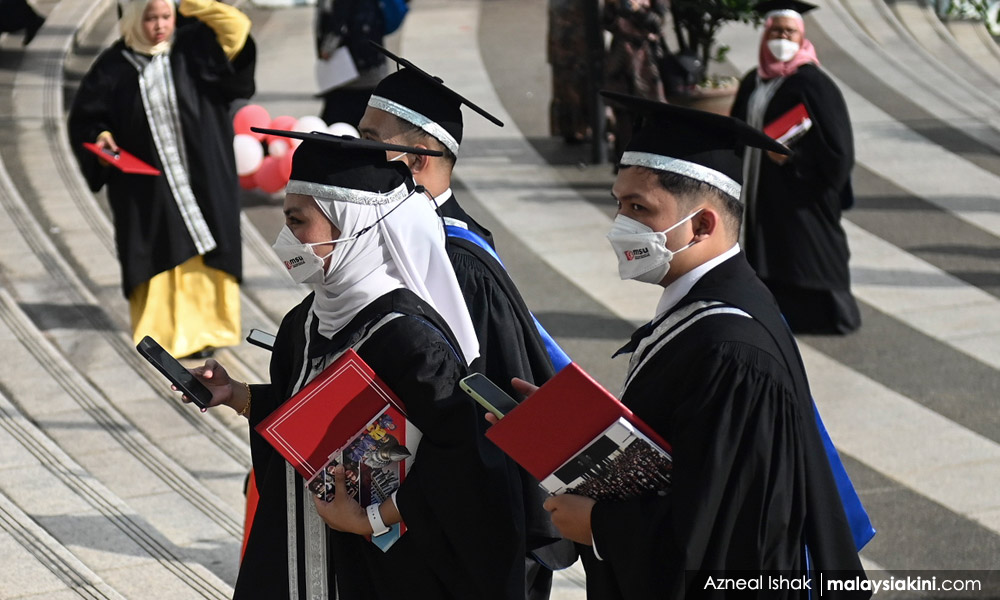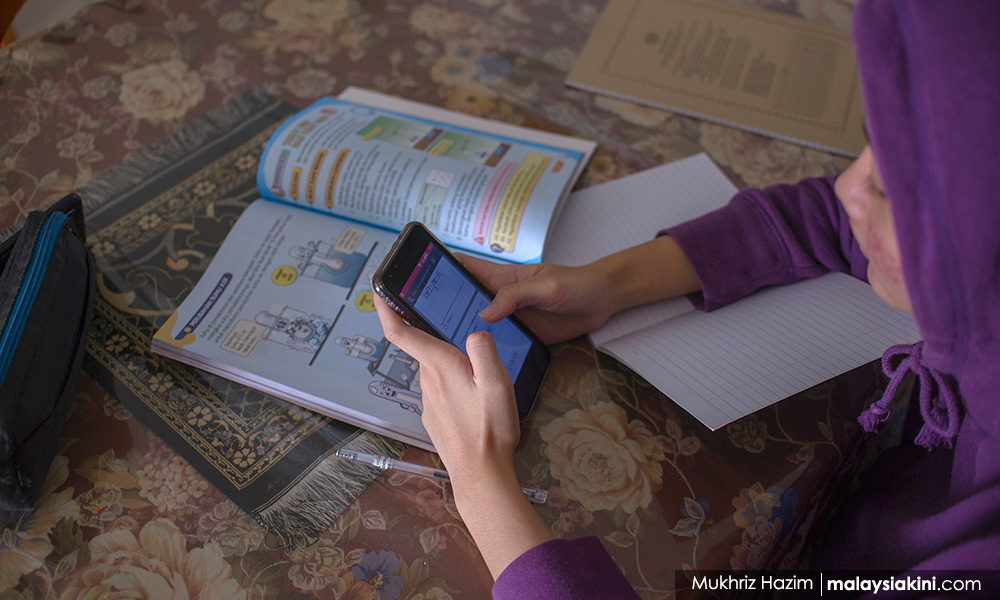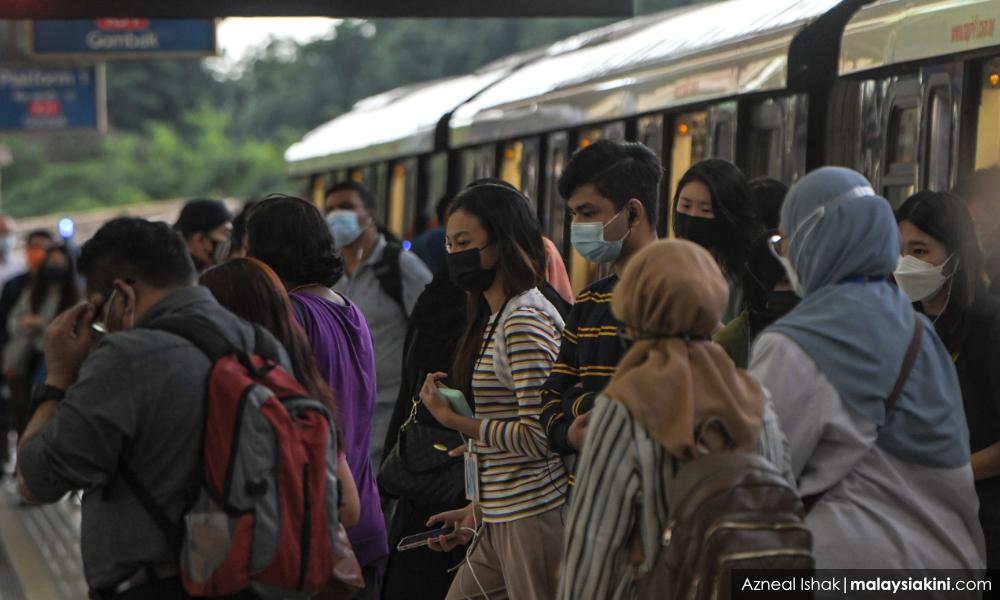Lately, there has been a lot to think about regarding Malaysian politics and its effects on ordinary citizens. Uncouth ministers making stupid remarks in the media, a regal threat of secession, unending flash floods, rising food prices, heart-stopping traffic woes, and grade inflation among university graduates and SPM candidates.
Absurd remarks made by ministers and MPs are not unusual in the Malaysian context. In fact, an added reason many of us appreciate living in Malaysia is that there is never a dull day. There is always something to laugh about, and some leader to scoff at, or make fun of.
From turning flash floods into “flood festivals”, to criminalising “disrespectful” language usage, there is always something that reassures every ordinary Malaysian, that maybe we the masses are in fact a lot smarter than the politicians in office. Simply, the stupidity of others makes us look like geniuses. This is a real confidence booster.
But there is a lot to cry about too.
Runaway kleptocracy involving the political and corporate elite is suffocating the country. Convicted felons are allowed to endlessly strut their stuff in the media. There is a rising lack of shame among leaders who flaunt their feudal double standards.

Then there is the disgusting show of wealth amassed through corrupt crony deals and lavish patronage. Among these specimens, many boast about performing the haj or umrah more times than is stipulated in Islam. Social media is the perfect platform for these objectionable personalities to upload their photos and publicise their piety.
The hypocrisy is nauseating, the dishonesty is choking, and the shamelessness is embarrassing. So, while there is a lot to laugh about, there is more to be depressed about, as most of us are inflicted by corruption fatigue.
Rot in higher education
I recently read a comment in a local media portal in response to a news item. The report was about corruption in our public universities. It was depressing enough, but not surprising.
This particular story concerns the leaking of exam questions at a public university’s Medical Faculty. It also highlighted bad practices that many of our academics in public universities indulge in. These are favouritism, nepotism, cronyism, and an ineffective system of checks and balances to curb dishonesty among students, lecturers, and university administrators.
There is also extreme apathy at various levels of university administration, towards taking stern action against wayward lecturers, including those who practice plagiarism and block promotions of deserving junior scholars.
Regarding the latter, the toxic culture of jealousy, envy, and insecurity in our public universities describes the enduring “academic culture” of today.

Academic culture had a totally different meaning in the past, during my time as a junior lecturer or even as a student in the US, 40 years ago. In fact, academic culture existed over two and half thousand years ago in the Academies of Ancient Greece. The Greek Academy was founded by Plato, in the fourth century, BCE.
At the academy, it was a place of learning, where younger scholars would visit older scholars to listen and learn. The older scholars would discuss science and philosophy with each other and record their learning in scrolls. These would then be discussed with the younger scholars in healthy intellectual exchange, friendly debates and sharing of knowledge.
In Muslim tradition, education is defined as the teaching, learning, and assimilation of knowledge. Scholars and Sufis passed on their teachings to students via the granting of the ijazah or degree. Before this could take place, there was a constant exchange of knowledge, exploring new domains of thought and interaction between student and scholar. Scientific thought was an important component of this transmission and educational culture.
This is no longer the practice in Malaysian universities. We do not have such a culture which values interaction between a knowledgeable group of senior scholars and junior academics and students who seek their wisdom.
A colossal mess
Among a few of us dedicated scholars who cherish this ancient practice, we have taken the personal initiative to organise “reading groups” at our homes, on weekends, or at night. Hopefully, this trend will gain momentum for the sake of the younger generation of Malaysians.
I myself have done a small part in salvaging this dying academic culture. I have personally reached out to a small group of young Malaysians who connected with me on social media over the last few years. They are interested in expanding their knowledge, their powers of critical thinking, intellectual debate, and gaining exposure to alternative literature and theories that are relevant to our lives.

All of them, including myself, are driven by the current chaos in the country. Our passion to make sense of the regressive aspects of political, religious, and social life in Malaysia is the driving force behind this attempt to revive our academic culture.
As for our universities, the prevailing culture avoids such interaction, sharing of knowledge, and healthy intellectual debates. This is probably due to two reasons.
First, there are many insecure academics who relish an administrative position, accept the allowances, and who love any form of controlling power over a department or faculty. They publish and engage in scholarly research, but their work has a minuscule effect on society and ordinary Malaysians. However, government grants are obtained and the KPIs are fulfilled. Promotion secured. Done.
Second, promotions of deserving and genuine scholars are blocked because of an anticipated fear of being overshadowed. Yes, this is a recurring problem in many universities, and over the decades, many promising scholars in Malaysia’s higher education institutions have left academia or left the country to pursue an academic career elsewhere.
Overall, higher education is a colossal mess in this country.
Microcosm of Malaysia
The problem in our universities is only one example of what is happening in the rest of society. We have sunk into a political and social abyss that prioritises shortcuts, cheating, and unashamed corrupt behaviour. A manipulative political culture dominates one that uses authoritarian measures, religious and racial rhetoric, and corruption to dupe the masses.

This is not only dishonest but also cruel and demeaning. It is cruel to continue with the double
standards and elitism, where the mantra “cash is king” seems to have replaced our national identity. Most Malaysians are suffering from corruption fatigue.
Many loyal citizens feel they cannot do much because they are not of the “right ethnicity”. Those who are in the right group, but of good morals, integrity, and principles, speak up but are marginalised, ostracised, and ridiculed in the process.
These frustrated Malaysians will probably leave the country as well to give their offspring a better future. They resent the rising authoritarianism that is a continuous insult to the democracy enshrined in our Federal Constitution.
The hypocrisy is that amidst so many infringements on our personal freedoms, the political system still upholds the farce of democratic elections and Parliament sittings. All we are doing is paying lip service to the Constitution. This is unjust.
Our leaders should acknowledge that they are partly to blame when Malaysians give up their citizenship. When Malaysians seek happiness, self-respect, personal growth, and justice for their family in another country, leaders should not be dismissive. They should take this matter seriously, analyse it deeply, and admit where they have failed.
Finally, leaders must address the corruption fatigue that millions of Malaysians are suffering from. - Mkini
SHARIFAH MUNIRAH ALATAS is an academician with zero tolerance for corrupt, arrogant and frivolous leadership.
The views expressed here are those of the author/contributor and do not necessarily represent the views of MMKtT



No comments:
Post a Comment
Note: Only a member of this blog may post a comment.